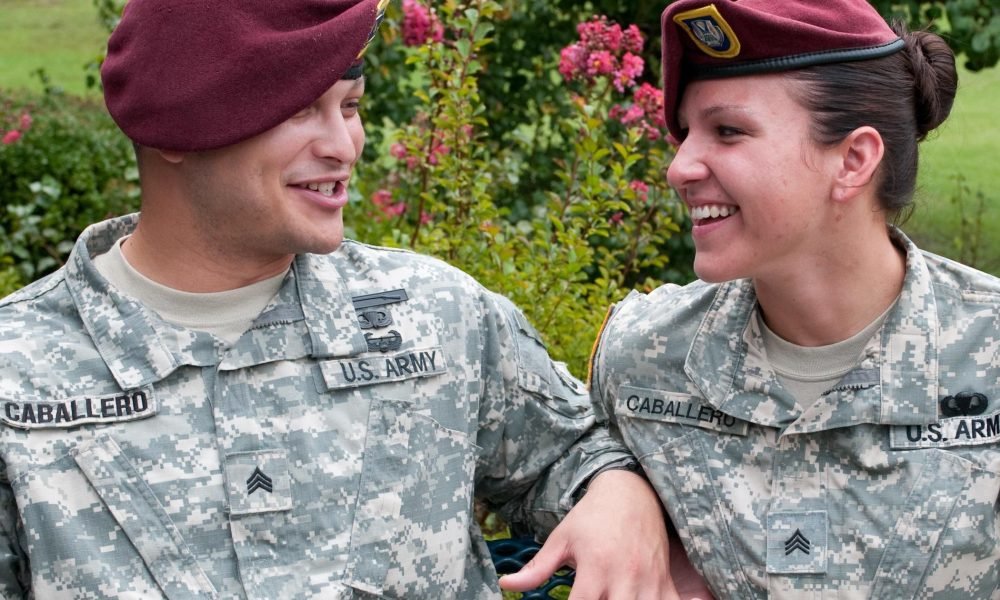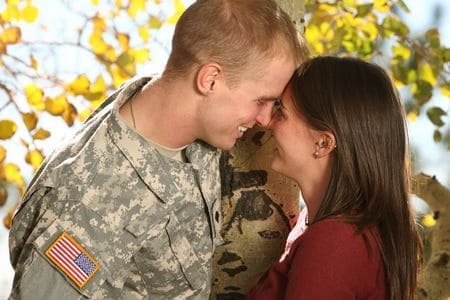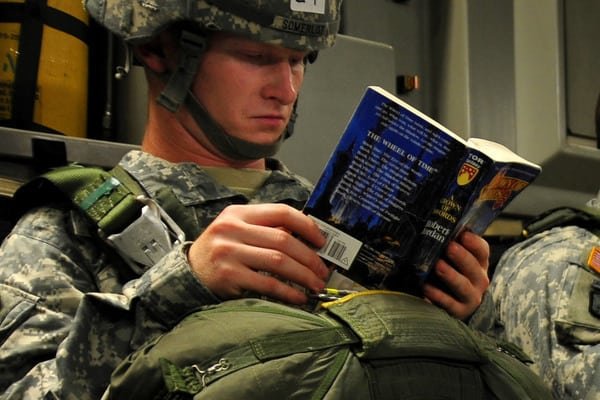
Helping Military And Veteran Couples Strengthen Their Marriages And Relationships

Is keeping a relationship healthy easy even in the best of situations? People in long-lasting relationships report that it takes an investment of constant effort, like growing a beautiful garden to keep a relationship thriving. When your loved one has a serious injury and you are in a caregiving role, it can take a toll on your relationship. And in order to keep your relationship strong, you need to assess it as honestly as possible.

According to reports, the divorce rate among military members has reached an alarming rate over the past few years. In some groups, the number of divorces has even nearly doubled. Those serving our country deserve our best efforts at strengthening and protecting their marriages and family relationships. Chaplains, family services departments, and military leaders are finding proactive ways to help couples build strong marriages.
And these may include any of the following:
- Discovering the true issues in your relationship;
- Forgiving each other (and yourself);
- Recognizing what needs to improve;
- Finding ways to create hope;
- Creating balance and ways to meet both partner’s needs;
- Learning new skills; and,
- Knowing when to look for help and outside resources.
Remember that a good marriage consists of shared activities, shared responsibility, common goals, along with healthy intimacy.
Once one partner feels that he or she is the reason for the disruption in the relationship he or she feels deep anxiety and sadness. The upset spouse becomes encumbered with self-doubt and wonders why their partner still stays in the marriage. Partners don’t feel free to ask for emotional support from each other.
Communicate and then seek help
Discuss the injuries, pains, issues, and problems in your relationship. A thorough understanding of the healing process, as well as its limitations, is likewise essential for both of you. Having ‘pillow talks’ has been considered as an effective strategy to get started.
Talk openly as problems arise, rather than withholding resentment and avoiding conflict. Understand that anger is a natural response to the limitations illness or injury imposes on a marriage and needs to be expressed. Finally, realize that mature love comes with much effort and conscious desire to keep the marriage/relationship together.
Don’t blame each other when the reality is you are both overwhelmed. Get some help! Don’t be afraid to call friends, neighbors, and family members and tell them what you need. Solicit supportive services to help deal with negative feelings. Both caretaker and patient may carry heavy burdens and experience unproductive feelings of guilt and shame. These feelings may manifest as anger, bitterness or apathy. Talking is good medicine.
Make caring mutual
Deal with the ups and downs of the healing process. It takes ongoing communication and imagination to find ways to give and take and to acknowledge what each partner can do for each other. To avoid silent resentment, make direct requests when you need something. Don’t assume your partner knows what you need. Coaching each other through it in a supportive way will lead you both to a healthy, happy relationship.
Learn how to give time for intimate moments

Keep your spouse from feeling neglected. Health issues may suddenly throw sensual urge out the window, but intimacy does not have to follow. An honest discussion is necessary even if the healthy partner is not complaining.
Deciding how you can best achieve a physical intimacy which affirms your feelings of love for each other. This requires talking very openly about how to do this and putting away unrealistic expectations about this matter. You need to make intimacy a priority and talk about it. Tell each other what feels sensual and what hurts.
Be willing to attend marriage counseling
There are many marriage mentoring programs that offer practical support to couples as they face the inherent stresses of military life and new stages in a marriage. This program encourages both older veteran and active-duty couples to communicate with younger couples. Instead of a “marriage counseling” type of mentoring, this program simply uses a successful, healthy couple as a role model. They share their experience through their stories. The wealth of resources in healthy military marriages can be mobilized to help strengthen younger married members.
Designed with flexibility to meet the demands of military schedules and deployments, mentoring sessions can occur in small groups or one-to-one couple meetings over a twelve-week or twelve-month format. Couples develop a friendship over guided conversations about marriage. They share their wisdom gained through experiences. Their stories surface marriage strengths, joys, memories, differences, challenges, and problem-solving skills.
Remember that it’s always going to be you and your partner who could build the stronger marriage and save your relationship.
More inLifestyle
-
`
A Veteran’s Open Letter To The Prince Of Cambridge
If you were born a prince, like a famous Prince of Cambridge, you would have a lot of options for your...
June 5, 2023 -
`
You Must Appreciate the Amazing Growth of the Tulsa Community Foundation
The Tulsa Community Foundation (TCF) is a charitable organization which was founded on the 30th of December 1998 by a banker,...
June 5, 2023 -
`
ELDERBERRIES: Learn about These Powerful, Immune-Strengthening Tart Little Fruits!
What would you do if someone handed you a capsule that could regulate your blood sugar level, help you lose weight,...
June 5, 2023 -
`
Here Is Why Lucy Kennedy Should Be Your Inspiration
For normal people like us, celebrities (or famous people, for that matter) offer a window to the limitless possibilities which we...
June 5, 2023 -
`
If You’re Among The Health-Watchers, You Should Probably Know About Pre-Diabetes
If you’re an adult and consider yourself sufficiently aware, you know what diabetes is. The disease is so common that even...
June 2, 2023 -
`
Motivation Isn’t Enough to Get You to the Finish Line; You Need Discipline!
Motivation is the intrinsic spirit to undertake a challenging task. It is the positive enforcement that comes from within and keeps...
June 2, 2023 -
`
Gardening and Green Activities: a Definite Solution for Your Anxiety Attacks!
If you are not fond of nature and nurturing plants, you may be shaking your head at the idea of gardening....
May 30, 2023 -
`
Health Benefits Of Eating Beets You Probably Didn’t Know
Beets have gained much importance as a healthy low-calorie food option in many diet charts. It has become one of the...
May 30, 2023 -
`
Best Books Ever Written About War That Every Man Should Read
Every military service member needs his daily dose of knowledge and skill enhancement, inspiration and motivation. And reading some books about...
May 30, 2023















You must be logged in to post a comment Login